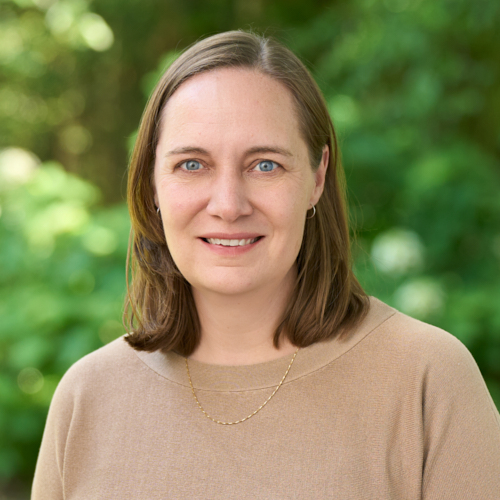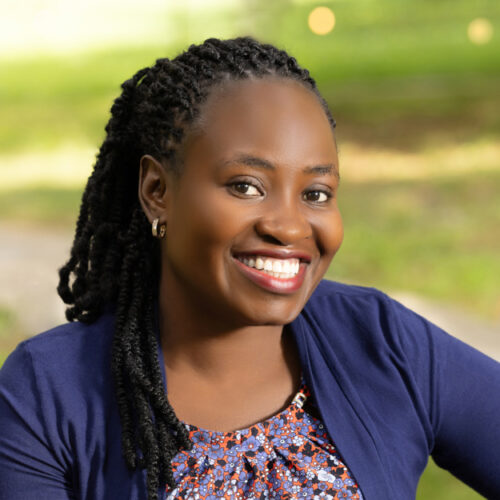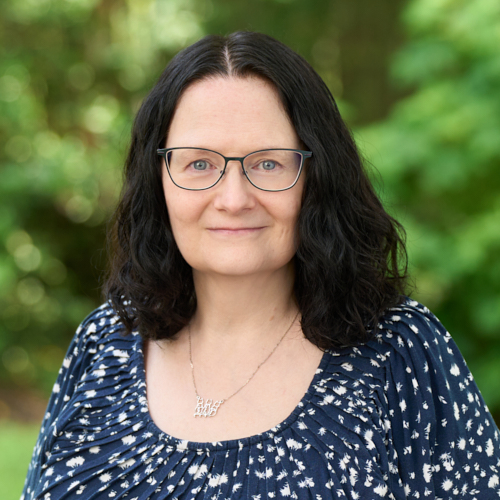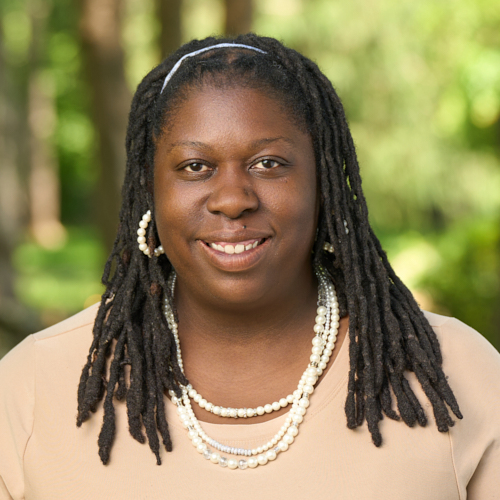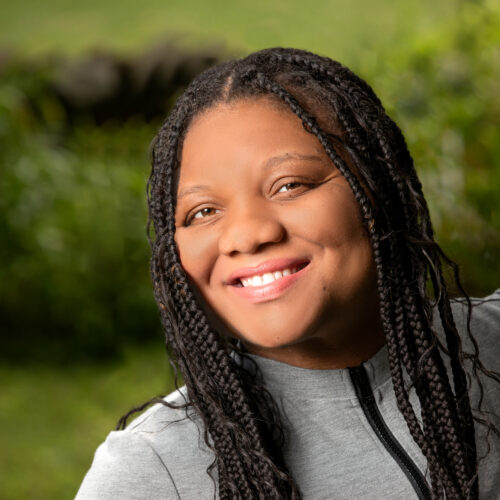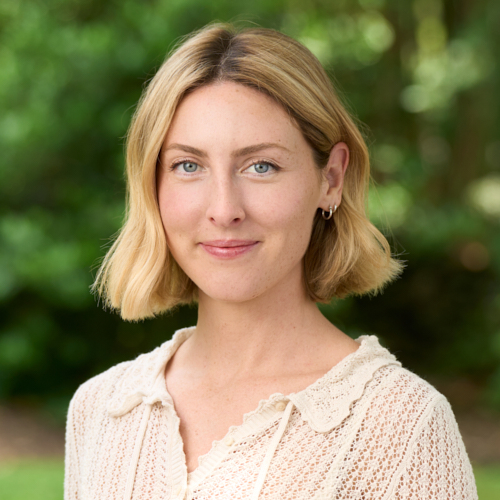Laura is an Education Program Associate and coordinates workshops, staff trips, and program outreach in many Midwestern and Western states. She also oversees the partnerships between PopEd and various AP Summer Institutes and helps develop K-12 teaching materials. Laura has extensive experience in outdoor education having worked in various capacities at Nature’s Classroom in Massachusetts, and most recently taught a middle school environmental education elective that she designed. In her spare time, Laura loves relaxing with a good book, playing outside with her wife and daughter, and like a good Texan, smoking barbeque and riding horses.

June 2025 staff
Robin Sgambati
Office of the President
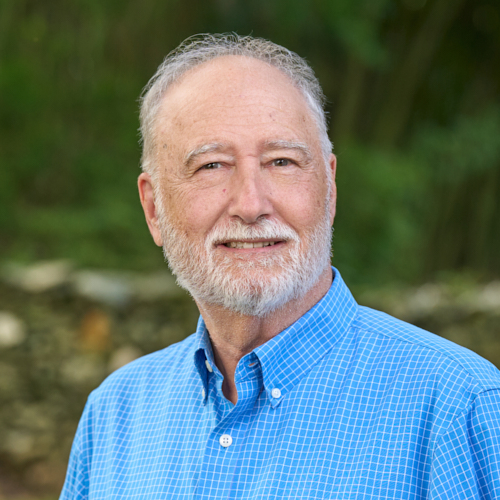
John Seager
President and CEO
john@popconnect.org 202-974-7700John has been a guest lecturer at more than 80 colleges and has spoken to numerous environmental, religious, and community groups all across the U.S. on the environmental and human costs of rapid population growth. He was appointed to the U.S. Environmental Protection Agency by the Clinton Administration and also served as Chief of Staff for U.S. Representative Peter H. Kostmayer (D-PA), a senior member of the House Interior and Foreign Affairs Committee. A veteran of more than 50 political campaigns, John has authored numerous op-eds and articles on various aspects of population growth. He holds a bachelor’s degree in political science from Trinity College in Hartford, CT.
Vice Presidents
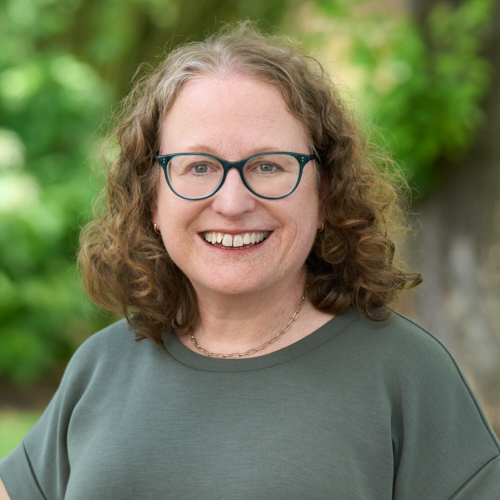
Pamela Wasserman
Senior Vice President for Education
pwasserman@populationeducation.org 202-974-7745Pam has been leading Population Education’s team for over 30 years and has been working on population issues since 1987 (when world population was only 5 billion!). Over the years, she’s had the pleasure of engaging with so many fantastic educators from around the country and wonderful colleagues here in DC. In addition to curriculum development, workshop facilitation, event planning, fundraising, and program outreach, Pam is responsible for the strategic planning of the program’s future. Pam also serves as one of Population Connection’s senior managers. Outside of the office, she enjoys traveling and skiing with her husband and son, knitting, and challenging crossword puzzles.
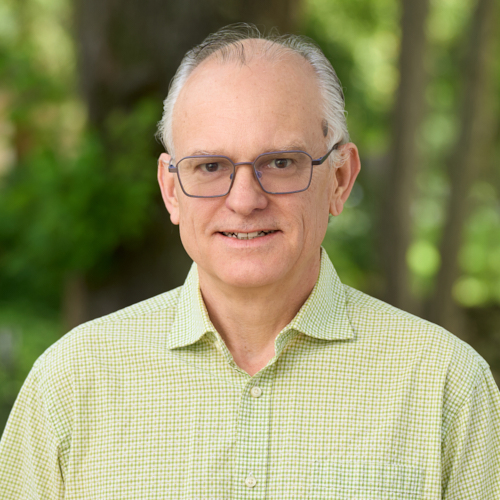
Brian Dixon
Senior Vice President for Government and Political Affairs
bdixon@popconnect.org 202-974-7744Brian Dixon is the Sr. Vice President for Media and Government Relations at Population Connection Action. He oversees the organization’s advocacy and political work including the #Fight4HER campaign. He also serves as a public spokesperson for the organization with the press and public. Prior to joining Population Connection, he worked on several congressional campaigns and served as a Legislative Aide on Capitol Hill for a progressive Democratic member of the House.
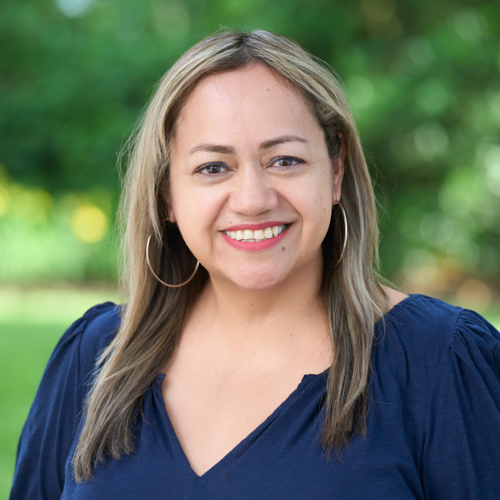
Maria-Luisa Orozco
Senior Vice President for Administration and Chief Financial Officer
morozco@popconnect.org 202-974-7707Maria was born in Guatemala City, Guatemala. She immigrated to the U.S. in April 1984 and joined Population Connection in January 1997. As the V.P. for Administration/CFO, Maria oversees Population Connection’s Human Resources, accounting, and IT services. She graduated from TESST College of Technology in 2001 where she studied Network Information Technology.
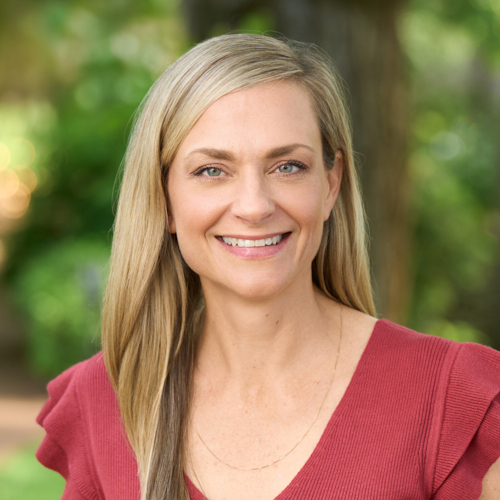
Shauna Scherer, MPA, CFRE
Senior Vice President for Advancement
sscherer@popconnect.org 202-974-7730A Certified Fundraising Executive, Shauna oversees all fundraising initiatives to support Population Connection and Population Connection Action Fund. She’s been with Population Connection since 2009. She loves the outdoors and regularly travels the U.S. with her family and dogs, visiting roadside attractions as well as National Parks and historic sites. She resides in San Diego County.
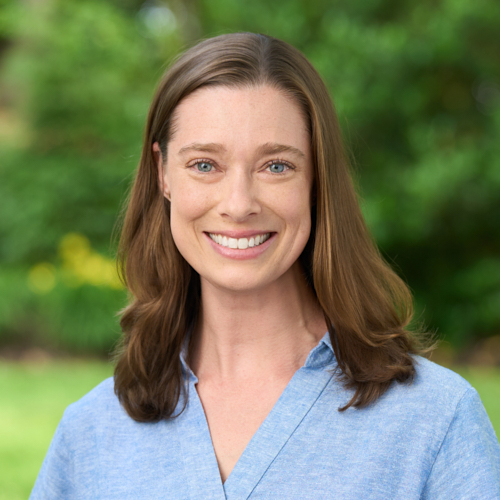
Marian Starkey
Vice President for Communications
mstarkey@popconnect.org 202-974-7735Marian joined Population Connection as a Field Fellow in 2007. She has an MSc in Population and Development from the London School of Economics and Political Science and a BA in Psychology (with a minor in Child Development and Family Relations) from the University of Maine.
She is originally from Maine, where she currently lives with her husband and their dog, Penny, a feisty little chihuahua-Yorkie mix. Her two late beagles are never far from her thoughts—they were terribly behaved, but she misses them dearly!
Marian has been a clinic escort since 2007, first at an independent clinic in Falls Church, Virginia, and, since 2012, at Planned Parenthood in Portland, Maine. She also served on the Board of Directors of SAFE, Maine’s abortion fund, for five years, most of that time in executive roles.
Marian’s hobbies include attending concerts and music festivals, hiking with her dog, reading fiction, and volunteering for her local wildlife rehab.
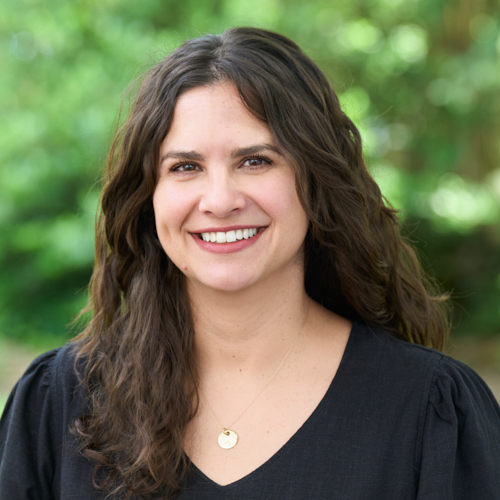
Nicole Martin
Vice President for Marketing
nmartin@popconnect.org 202-974-7722Nicole leads the direct marketing fundraising programs at Population Connection and Population Connection Action Fund. Prior to starting at Population Connection in 2014, Nicole worked in the for-profit marketing sector. She feels fortunate that she can create positive change in our world through inspired marketing campaigns. Nicole holds an MBA from San Diego State University.
Education
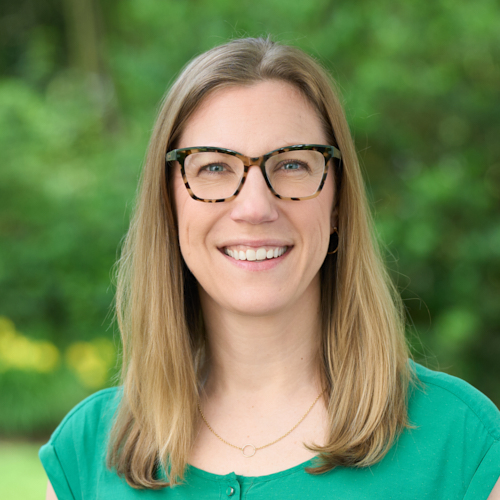
Carol Bliese
Senior Director of Teacher Programs
cbliese@popconnect.org 202-974-7729Carol is PopEd’s Director of Teacher Programs, overseeing the day to day functioning of the workshop program. She facilitates teacher training workshops throughout the U.S. and Canada, and has led over 700 workshops in her nearly 20 years with the program. Additionally, she is involved with curriculum development, manages the program website and blog, and is part of the World of 8 Billion annual student contest strategic team. Being from Wisconsin, Carol is an avid Green Bay Packers fan and enjoys playing board games and volleyball in her spare time.
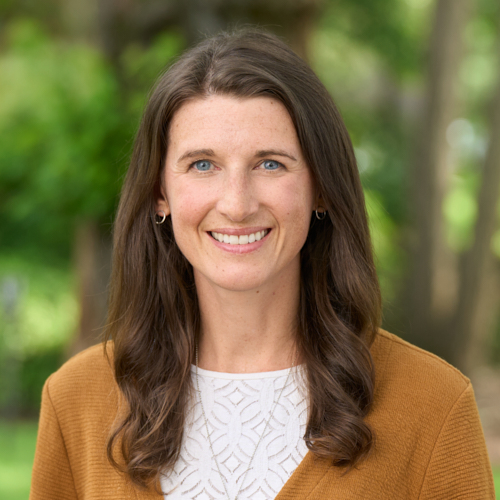
Lindsey Bailey
Education Network Director
lbailey@populationeducation.org 202-974-7748As the Education Network Director, Lindsey oversees all aspects of Population Education’s network of volunteer trainers and facilitators. She also coordinates Population Education workshops, staff trips, and program outreach in the Great Lakes region. Lindsey has been with the PopEd team since 2011, facilitating hundreds of teacher workshops and webinars. She also assists with developing new teacher resources and curricula, oversees aspects of PopEd’s marketing, and conducts the program’s biennial evaluation. In her spare time, Lindsey enjoys camping and traveling with family and friends.
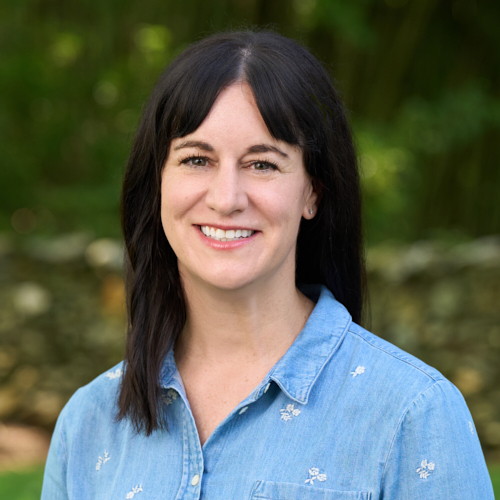
Barbara Huth
Online Learning Manager
bhuth@populationeducation.orgBarbara is the Online Learning Manager for Population Education (PopEd). Barbara supports all online workshop facilitation, oversees an online graduate level course, and coordinates the program’s annual World of 8 Billion student video contest. Barbara brings extensive classroom experience, having spent 10 years as a teacher, and also earned her National Board Certification in Teaching for Earth & Space Sciences. Barbara has a BS in Integrated Health Studies from Kent State University, an MA in Secondary Comprehensive Science Teaching from the University of North Carolina at Charlotte, and an MA in Character Education at the University of Birmingham.

Ana-Maria Gutierrez
Education Marketing and Outreach Manager
agutierrez@populationeducation.orgAna-Maria oversees PopEd’s communication with many of the program’s external stakeholders. She develops and implements plans to promote PopEd’s K-12 resources and teacher workshops to formal and non-formal educators around the U.S. and Canada.
She is part of the World of 8 Billion student video contest team and also creates content and materials to support teachers who are already using PopEd curricula. Outside of work, Ana-Maria likes to explore her creative side through painting and crafting, enjoys travel adventures, and spending quality time with her two pups Marley and Milo.

Abby Watkins
Senior Education Program Associate
awatkins@populationeducation.org 202-974-7712Abby is an Education Program Associate and coordinates the Population Education workshops, staff trips, and program outreach in the southeastern part of the U.S. She leads workshops throughout the States and Canada, and is develops teaching materials for secondary classes and ELL. Abby previously served as the Population Education Fellow. Outside the office, Abby enjoys listening to podcasts, traveling, and hiking through national parks.
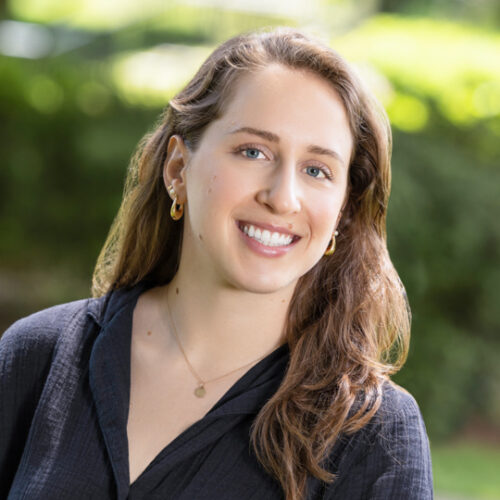
Bennett Steidinger
Education Program Associate
bsteidinger@populationeducation.orgBennett is an Education Program Associate for PopEd and coordinates workshops, program outreach, and staff trips in the southeastern part of the U.S. and Canada. She also conducts online and in-person workshops for educators across the country. Prior to this role, Bennett worked as a Curriculum Development Fellow for Population Education. She continues to use her experience as a middle school science teacher to assist in updating and developing resources for teachers. Outside of the office, Bennett enjoys reading, traveling, and crafting.
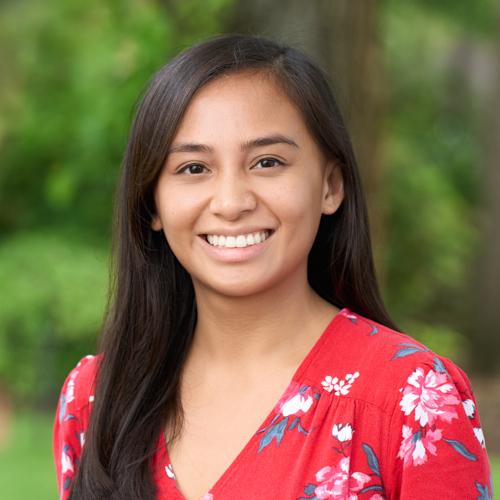
Cara Borja
Education Program Associate
cborja@populationeducation.orgCara coordinates workshops, staff trips, and program outreach in the Mid-Atlantic and in New England. Her prior work experience includes scientific research, non-profit development, and K-12 education. She is thrilled to be a part of the Population Education team!
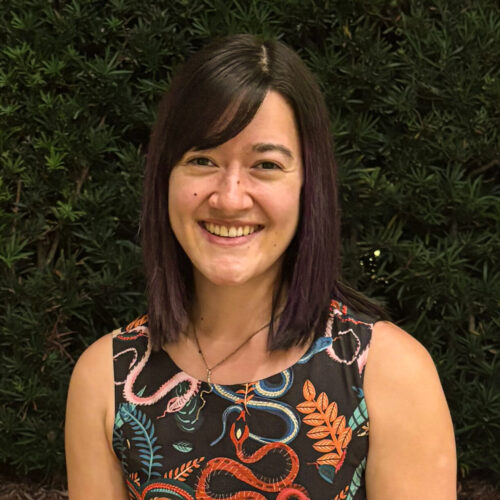
Brenda Miller
Education Program Associate
bmiller@populationeducation.orgBrenda is an Education Program Associate and coordinates the Population Education workshops, staff trips, and program outreach in the northern part of the U.S. She also conducts workshops online and in-person across the country. Prior to joining PopEd, she worked in environmental and museum education in both formal and nonformal settings. In addition to being a big nature lover, Brenda is a classical pianist and enjoys birding, hiking, gardening, kayaking, cross-country skiing, and cuddling with her ball python Cosmo!
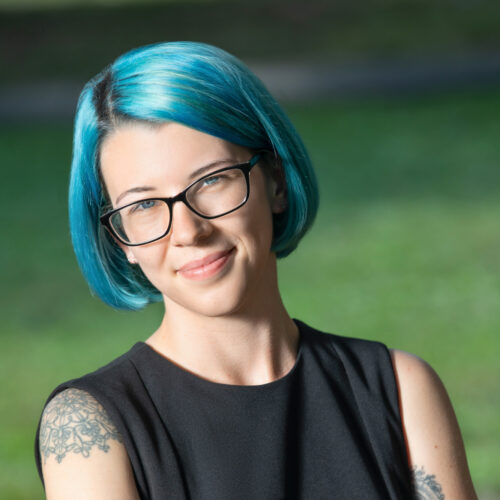
Ava Moore
Education Program Assistant
amoore@populationeducation.orgAs the Education Program Assistant, Ava oversees the administrative side of the PopEd program. She is responsible for ensuring tailored sets of workshop materials are provided to our hundreds of annual workshops, writing the Population Educator newsletter, and managing the online PopEd store. Ava also serves as PopEd’s in-house designer, creating lesson PDFs, program flyers, and other visual content for the program. Outside the office, Ava enjoys hanging out with her (celebrity) dog Pascal, doing jigsaw puzzles, making crafts, and reading mystery novels.
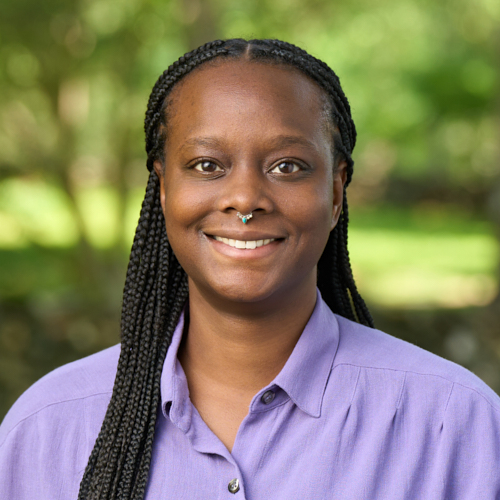
Lutfiyah.
Curriculum Fellow
lmadyun@populationeducation.orgLutfiyah. is the Curriculum Development Fellow for PopEd. She assists with updating PopEd resources, helps vet and onboard new trainers, and contributes to the PopEd blog. Outside of the office, Lutfiyah. enjoys being outdoors, knitting and crocheting, reading, traveling, and spending time with her cats.
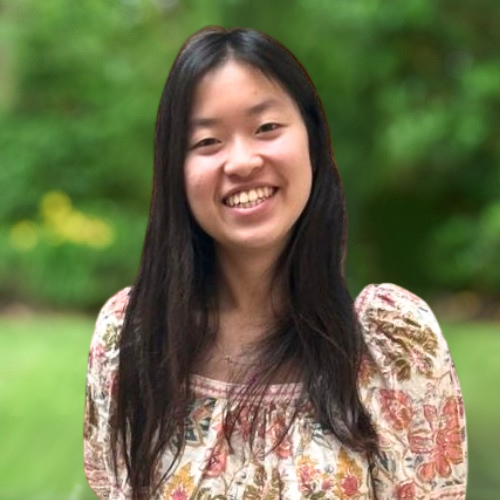
Michelle Hom
Student Engagement Fellow
mhom@populationeducation.orgMichelle is the Student Engagement Fellow for PopEd. Her primary role is assisting with the management and organization of the World of 8 Billion student video contest. This includes curating contest materials, engaging with students and teachers, and ensuring the contest is provided to participants in the United States and worldwide. She also creates PopEd social media posts and works on written materials for the PopEd blog. In her free time, Michelle loves photography, scrapbooking, and exploring new nature places and restaurants.
Field & Outreach
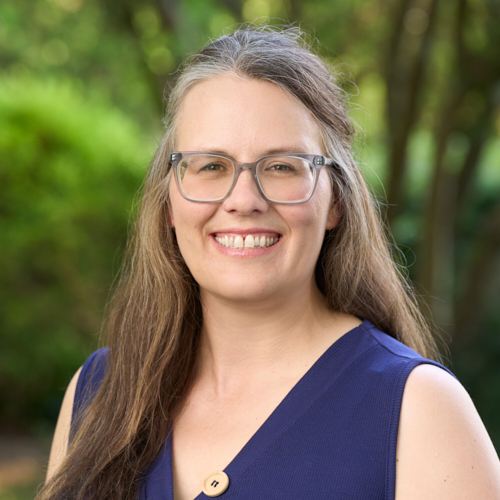
Rebecca Harrington
Senior Director of Advocacy and Outreach
rharrington@popconnect.org 202-974-7738Rebecca Harrington is the Senior Director of Advocacy and Outreach at Population Connection and Population Connection Action Fund, where she manages the grassroots field program, including the #Fight4HER (Health, Empowerment, and Rights) campaign. In her role, she works to develop campaigns and messages that seek to defend reproductive freedom for everyone, everywhere. She has spent over a decade working in progressive organizing around reproductive health and rights. She lives with her family in Washington, D.C.
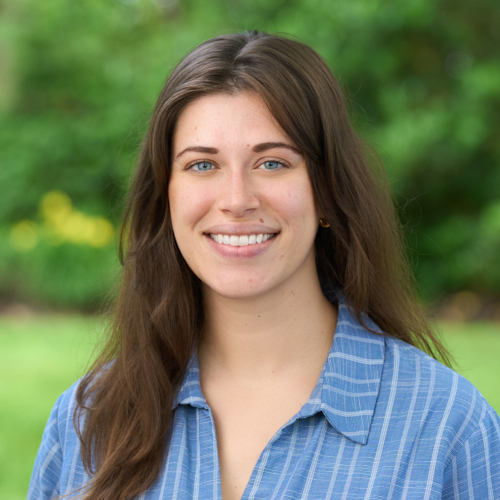
Lauren Salmiery
National Field Director
lsalmiery@populationconnection.orgLauren Salmiery joined Population Connection and Population Connection Action Fund in 2015 as an Advocacy Fellow and spent six years mobilizing our #Fight4HER (Health, Empowerment, and Rights). After working as a communications advisor for the United States Agency for International Development’s (USAID) Global Health Bureau, Lauren has returned to lead the #Fight4HER as the National Field Director. In this capacity, she strategizes and implements our grassroots efforts to expand access to safe, affordable, and comprehensive reproductive health care worldwide. She is passionate about global health, reproductive freedom, and environmental justice. Lauren lives in Washington, DC, with her husband and three cats.
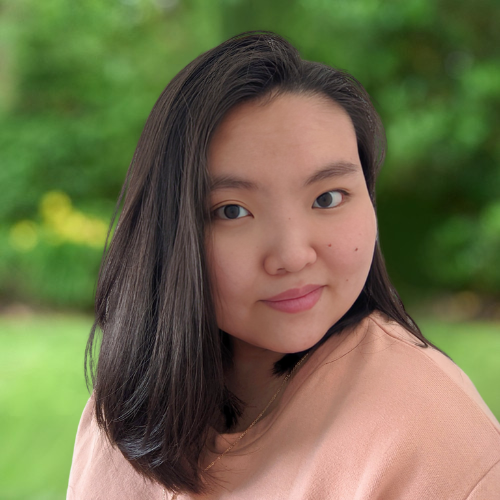
Isabel Song
Organizing Manager
isong@populationconnection.org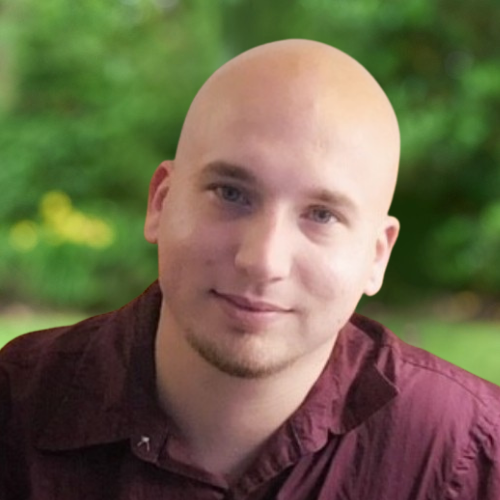
Kyle DeVasier
Regional Field Organizer - Nevada
kdevasier@populationconnection.org 202-332-2200
Kat Stratford
Regional Field Organizer - Arizona
kstratford@populationconnection.org 202-332-2200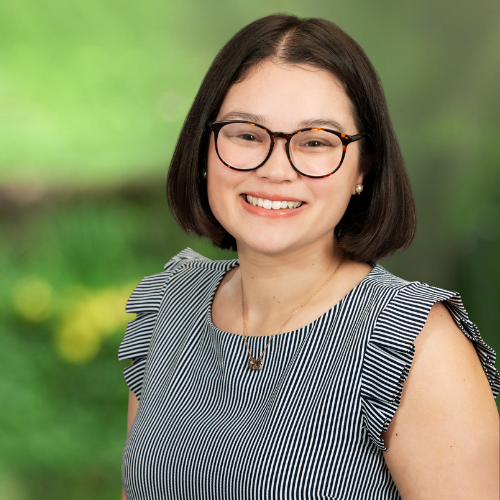
Kim Ip
Regional Field Organizer - New Hampshire
kip@populationconnection.org (202) 974-7736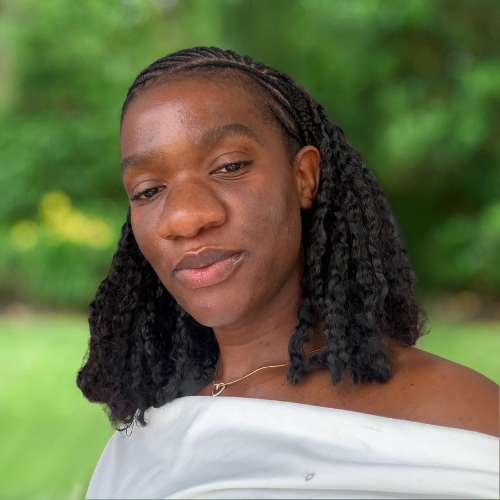
Richeline Cadet
Regional Field Organizer - North Carolina
rcadet@populationconnection.org (202) 974-7741Richeline Cadet is a community activist and political organizer. She’s a proud state-school graduate of Salem State University with a dual degree in Political Science & Criminal Justice. She is a lifelong Boston resident, who recently relocated to the research triangle in North Carolina.
Richeline previously served as the former Director of Organizing for MASSCreative, while having vast campaign experience as a former regional organizing director, consultant, and deputy campaign manager. Richeline is excited to bring her diverse experiences to Population Connection as the North Carolina Regional Field Organizer, working to champion the #Fight4HER campaign and other reproductive rights causes.
Communications

Hannah Evans
Senior Analyst, Outreach & Global Partnerships
hannah@popconnect.org 808-979-5750Hannah is interested in working with students, professors, and activists to promote positive social and environmental change. Hannah’s work investigates the ways in population dynamics intersect with global social, political, economic, and environmental systems and advocates for integrated developmental solutions that simultaneously combat climate change and societal injustices. She develops and gives comprehensive, solution-oriented presentations focused on the connections between global population growth, access to health care and education, women’s empowerment, and climate adaptation. Through an examination of some of the root causes of high fertility, her work seeks to highlight the interconnections between poverty, resource use and consumption, population pressures, women’s rights, and environmental challenges made worse by climate change.
At Population Connection, Hannah focuses on public speaking and the development of open-source, academic-style resources. She also cultivates partnerships between Population Connection and international NGOs. Before joining Population Connection’s staff, Hannah worked as an adjunct professor of Women’s Studies and taught classes on gender, science, and feminist theory. She has non-profit experience working as a program developer for sustainable agriculture and public health programs in Honduras and Panama and has worked as a researcher studying food security issues throughout Southern California. Hannah holds a BA in Environmental Policy and Natural Resource Conservation and Political Science and a Master’s in Political Ecology from San Diego State University, where her research focused on sustainability labeling and ethical consumption between the United States and Nicaragua.
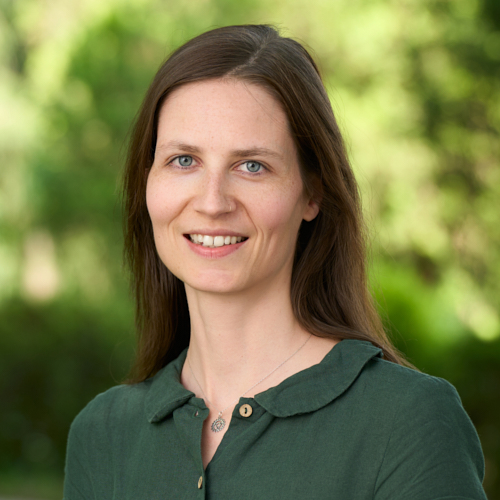
Olivia Nater
Communications Manager
onater@popconnect.orgOlivia joined Population Connection in 2022. She has been working in the population field since 2018 and loves that it combines her two greatest passions: conservation and women’s rights.
Olivia holds an MSc and a BSc in Zoology and has been working in environmental communications since she graduated in 2014, including for Population Matters, Friends of the Earth Scotland, and the International Union for Conservation of Nature (IUCN).
She enjoys the diversity of strategic communications across multiple platforms and distilling complex information for a variety of audiences.
In her free time, Olivia likes to immerse herself in nature, spend time with animals, dance, and practice yoga.
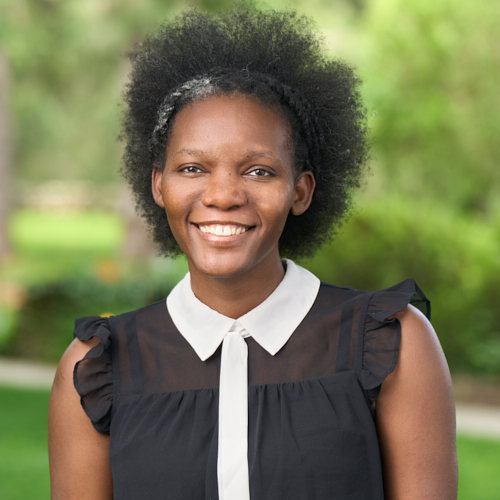
Florence Blondel
Digital Media Manager
fblondel@populationconnection.orgFlorence is a multifaceted activist, focusing on population issues, girls’ rights, and environmental protection. She previously worked with Population Matters, a UK-based charity advocating internationally for a sustainable human population through ethical, choice-based methods. This work aims to protect the environment and improve quality of life globally. Florence also worked with Global Footprint Network, where she communicated critical messages about Earth Overshoot Day and ecological sustainability through newsletters and social media, amplifying awareness of humanity’s impact on planetary resources. Her advocacy has reached global platforms, including speaking at the United Nations Commission on Population and Development (CPD). Florence has co-authored and presented powerful statements in partnership with other organizations, highlighting the need for action on population, sexual and reproductive health and rights (SRHR), and environmental issues.
An award-winning journalist, Florence began her career in 2010 with media outlets in Kenya and Uganda (where she wants to see a fertility transition). Since then, she has tirelessly campaigned and communicated about the interconnectedness of population, health, and the environment. She holds a Master of Science in Population and Development from the London School of Economics and Political Science (LSE). She is particularly passionate about communicating issues related to SRHR, the climate crisis, and broader environmental concerns. Her love for digital media and her alignment with Population Connection’s mission make her feel she’s found her ideal role.
In her free time, Florence enjoys balancing a well-rounded life. She divides her time between house chores, attending yoga classes, spending quality moments with her family, and socializing with friends. A self-declared coffee enthusiast, she still wonders how her tea addiction disappeared! Florence is also passionately building FlowReady, a menstrual education campaign dedicated to preparing pre-menarchial girls in rural communities for their menstrual cycles. The initiative seeks to break deeply entrenched cultural beliefs that equate menstruation with readiness for marriage and childbearing.
Membership Engagement
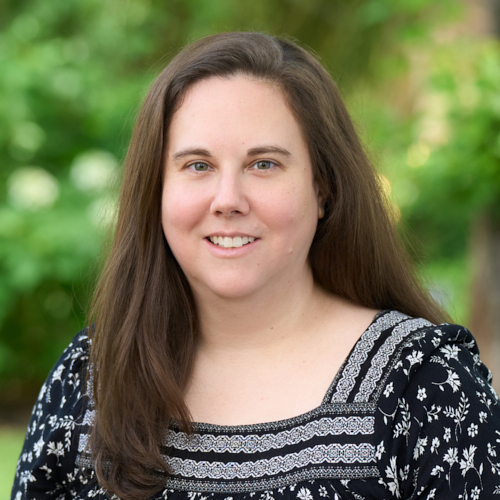
Carrie Brochu
Membership Services Manager
cbrochu@popconnect.org 202-974-7715Carrie has been with the Membership Department at Population Connection since 2017. In her free time, she loves to travel, take road trips, and go to concerts, movies, and other events. She also enjoys reading and spending time outdoors, hiking or camping.
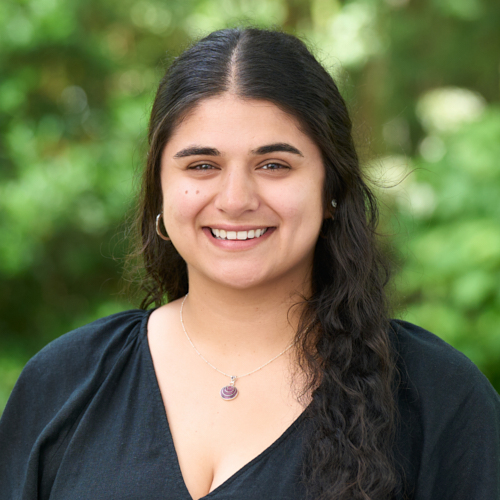
Stephanie Wolfe
Membership Relations Coordinator
swolfe@popconnect.org 202-974-7732Joining the PopConn Team in January 2020, Stephanie’s role as the Membership Relations Coordinator quickly transitioned from organizing in-person volunteer opportunities to planning a variety of Virtual Events for members and supporters. Earning a BA in Environmental Studies from CSU Monterey Bay, Stephanie is committed to helping protect the planet for future generations and strongly resonated with PopConn’s approach in addressing the issue. In her free time, she enjoys cooking, spending time outside, and exploring new places.
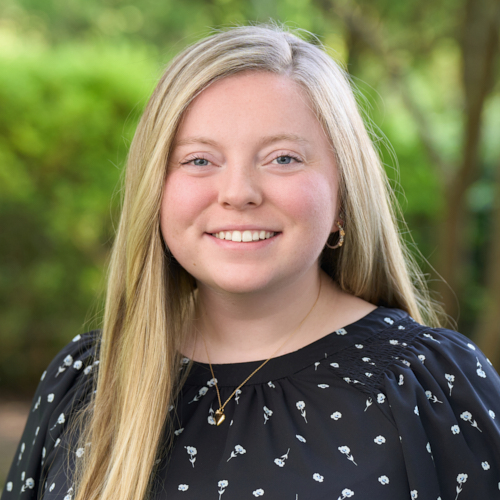
Bella McGlone
Board Liaison & Membership Coordinator
gmcglone@populationconnection.orgBella holds a bachelor’s degree in history and government from Georgetown University. Before coming to PopConn, she worked as an adoptions counselor at Humane Rescue Alliance. While in school, she interned with The Humane Society Legislative Fund, BlueWater Federal Solutions, and McCarthy Wilson LLP.
Marketing
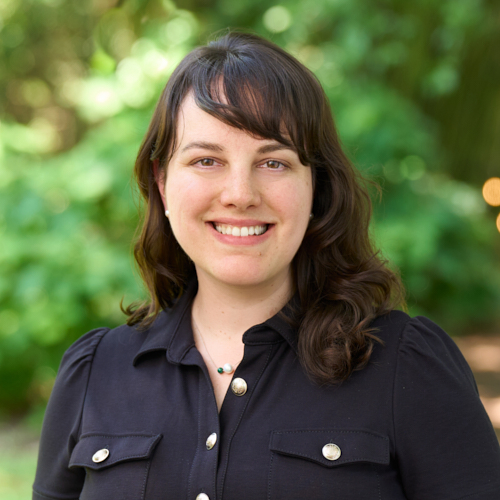
Natalie Widel
Director of Digital Marketing
nwidel@popconnect.org 202-974-7725Natalie joined Population Connection in 2008, and has worn many “hats” as part of the Development team. She currently oversees the organization’s digital fundraising and marketing presence, as well as the membership engagement program. A graduate of Bryn Mawr College, Natalie lives in Maryland and enjoys reading, baking, binging the best streaming tv shows, and spending time with her horses Cash and Frisco.
Development
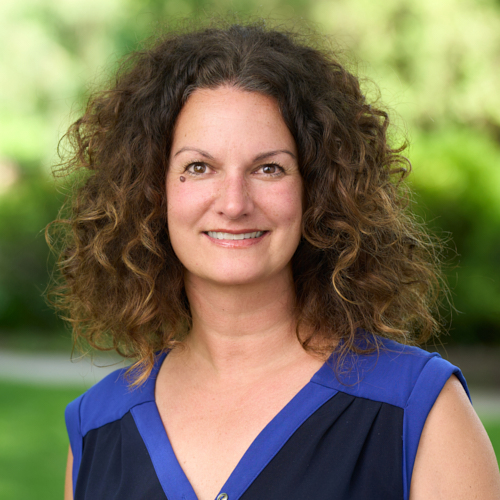
Jennifer Lynaugh
Director of Development
jlynaugh@popconnect.org 202-974-7710Jennifer Lynaugh, with Population Connection since 2015, proudly serves as Director of Development. Jenn is committed to the organization’s mission and enjoys working with generous individuals like YOU who help to make Population Connection’s programs possible. In her spare time, Jenn enjoys hiking, gardening, live music and dancing, reading, and some “R&R” on the beach. A former New Yorker, Jenn lives in San Diego with her husband, Tim, and their three “kids” who all have paws: Border Collie mix, Scarlet; Silver Bengal cat, Pearl; and big boy Maine Coon cat, Moses. Reach Jenn any time at (202) 974-7710.
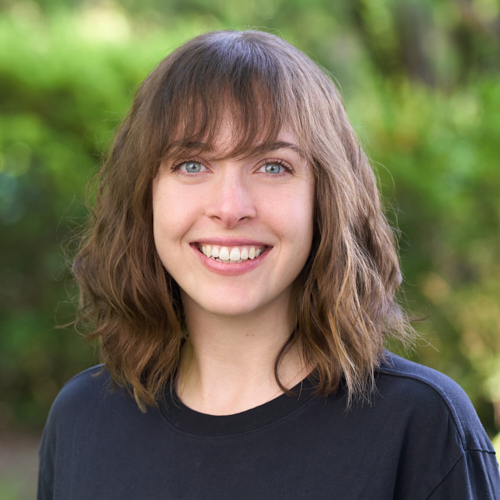
Victoria Wright
Director of Planned Giving
vwright@popconnect.org 202-974-7756Victoria Wright, MPA, is the Director of Planned Giving at Population Connection. She has the privilege of working with our wonderful donors in support of our programs to help ensure a sustainable future for everyone, everywhere. Prior to joining Population Connection, Victoria worked on several congressional campaigns and on the staff for progressive U.S. House members. She lives in Upstate NY with her adorable and energetic pup, Nora.
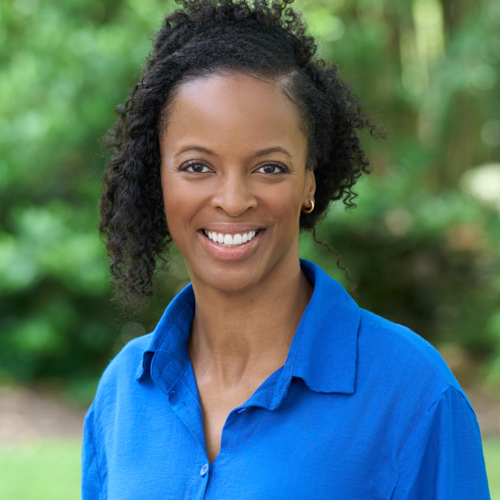
Kimberly Dexter
Philanthropy Officer
kdexter@popconnect.orgKimberly is a graduate of Howard University, where she played on the women’s volleyball team. She recently completed the Juris Master program at Florida State University. She has been working in nonprofit and development roles for 10 years, including at Black Women’s Health Imperative, The Arc of Southwest Georgia, and The Independence Fund.
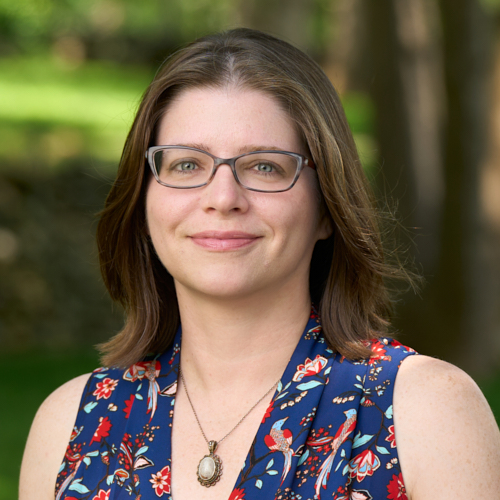
Malissa Cadwallader
Planned Giving Officer
Malissa is a graduate of St. Francis University in Pennsylvania. She also holds a Master’s degree in Pacific International Affairs from the University of California, San Diego. Malissa volunteered with the Peace Corps in El Salvador before beginning her career in nonprofit development. She has worked at American Forests, Women for Conservation, and the Rainforest Trust.
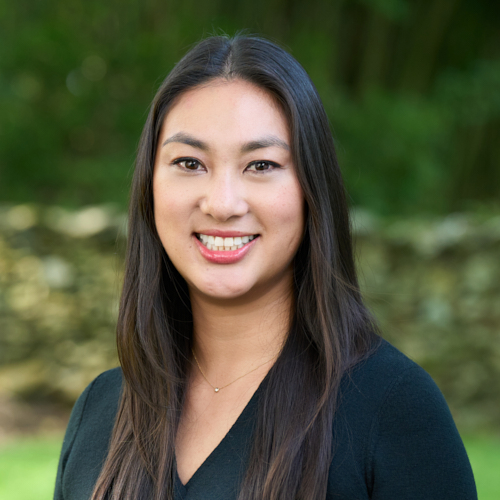
Sarah Ikemoto
Development Manager
sikemoto@popconnect.org 202-974-7717Sarah has been with Population Connection since late 2017 and was drawn to the human rights-based, cross-sectional approach to solving overpopulation and its ramifications. As the Development Manager, she leads estate administration and prospect research, as well as assisting with various fundraising initiatives. Living in sunny southern California, Sarah enjoys spending time in nature, volunteering with youth, sharing good food with friends, and exploring the world.
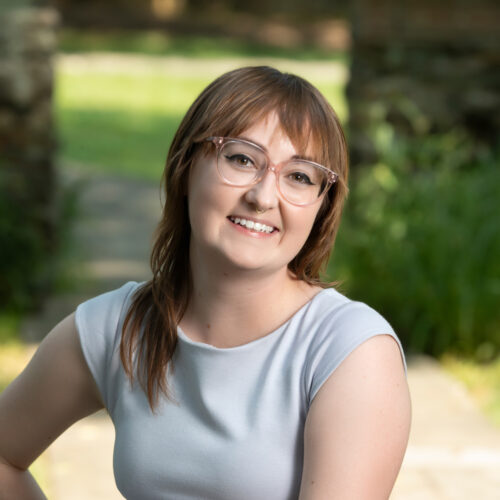
Sydnie Stocks
Special Gifts Officer
sstocks@popconnect.org 202-974-7709Sydnie is the Special Gifts Officer at Population Connection, where she supports fundraising initiatives, leads donor stewardship projects, and connects with supporters. She utilizes her skills and compassion to advocate for women’s rights globally. She hopes to inspire others to realize the societal benefits of gender equality and the full empowerment of women and girls. Outside of work, she enjoys volunteering, crafting, exploring new places, and spending time with her dachshund, Toast. She holds a B.A. in Sociology—Law and Society from the University of California, San Diego, and is currently pursuing a Master of Public Health at the University of Arizona in Tucson.
Administration
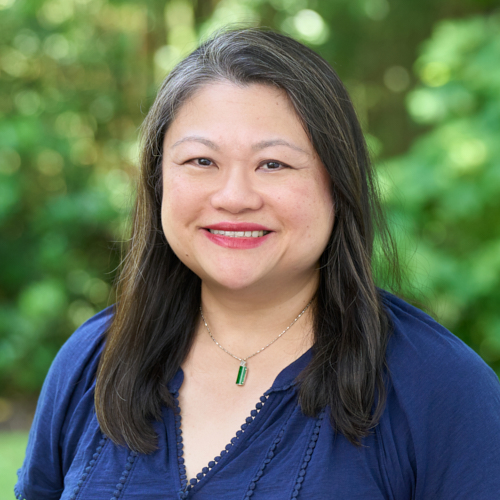
Deborah Shum
Senior Director of Human Resources
dshum@popconnect.org 202-974-7708Deborah serves as Human Resources Director at Population Connection, overseeing all aspects of the employment lifecycle. She has over 25 years of experience in nonprofit and corporate HR management. Deborah is a graduate of the University of Maryland and holds senior professional certification through the Society for Human Resources Management.
Outside of work, Deborah enjoys gardening, traveling, and volunteering in the community. Mid-career, she took a sabbatical to attend culinary school. After cooking professionally for four years, she returned to her HR career and still enjoys cooking for friends and family.
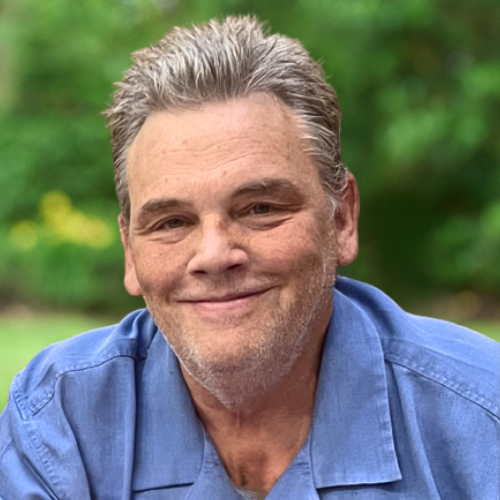
Peter Caggiano
Senior Information Technology Director
pcaggiano@popconnect.org 202-974-7714Peter Caggiano serves as Senior IT Director, providing strategic oversight of the organization’s information technology operations. With more than 35 years of experience, he brings a broad and diverse background shaped by leadership roles in both non-profit and corporate environments. His career reflects a deep commitment to leveraging technology as a catalyst for organizational success, efficiency, and innovation.
Peter is recognized for balancing strategic vision with practical execution. He integrates emerging technologies with organizational needs, ensuring IT investments deliver measurable value. His leadership emphasizes collaboration, adaptability, and proactive problem-solving in an evolving digital landscape.
Through his guidance, the organization benefits from a resilient and forward-looking IT framework that fosters innovation, safeguards critical resources, and empowers staff to achieve excellence.
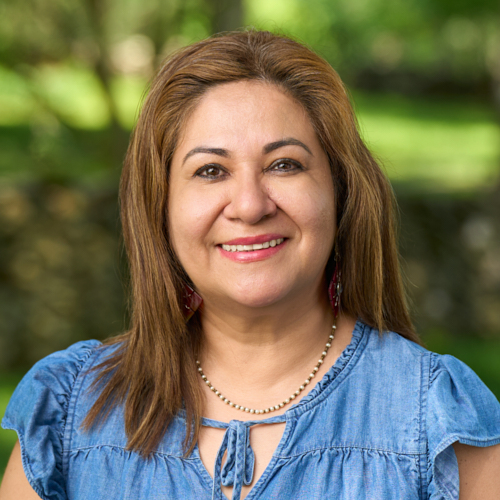
Ana Pineda
Office Manager
apineda@popconnect.org 202-974-7727Ana was born in El Salvador but has resided in the state of Maryland for the last 40 years. She has been with Population Connection for around 18 years on and off. Ana loves working at Population Connection and truly believes in its cause.
Brianell Osorio Rivera
IT Systems Administrator
bosorio@populationconnection.org 240.506.4340Brianell has over 9 years of experience in IT systems support in corporate and Federal contracting environments. He holds CompTIA Security+ CE Certification, which tests an IT pro’s capabilities in securing networks, applications, and ensuring data integrity.
His last position was with LinTech Global, training users on M365 suite tools and providing 1-1 support post training. He also has a wide range of experience, including system migrations, cyber security, and managing firewalls.

